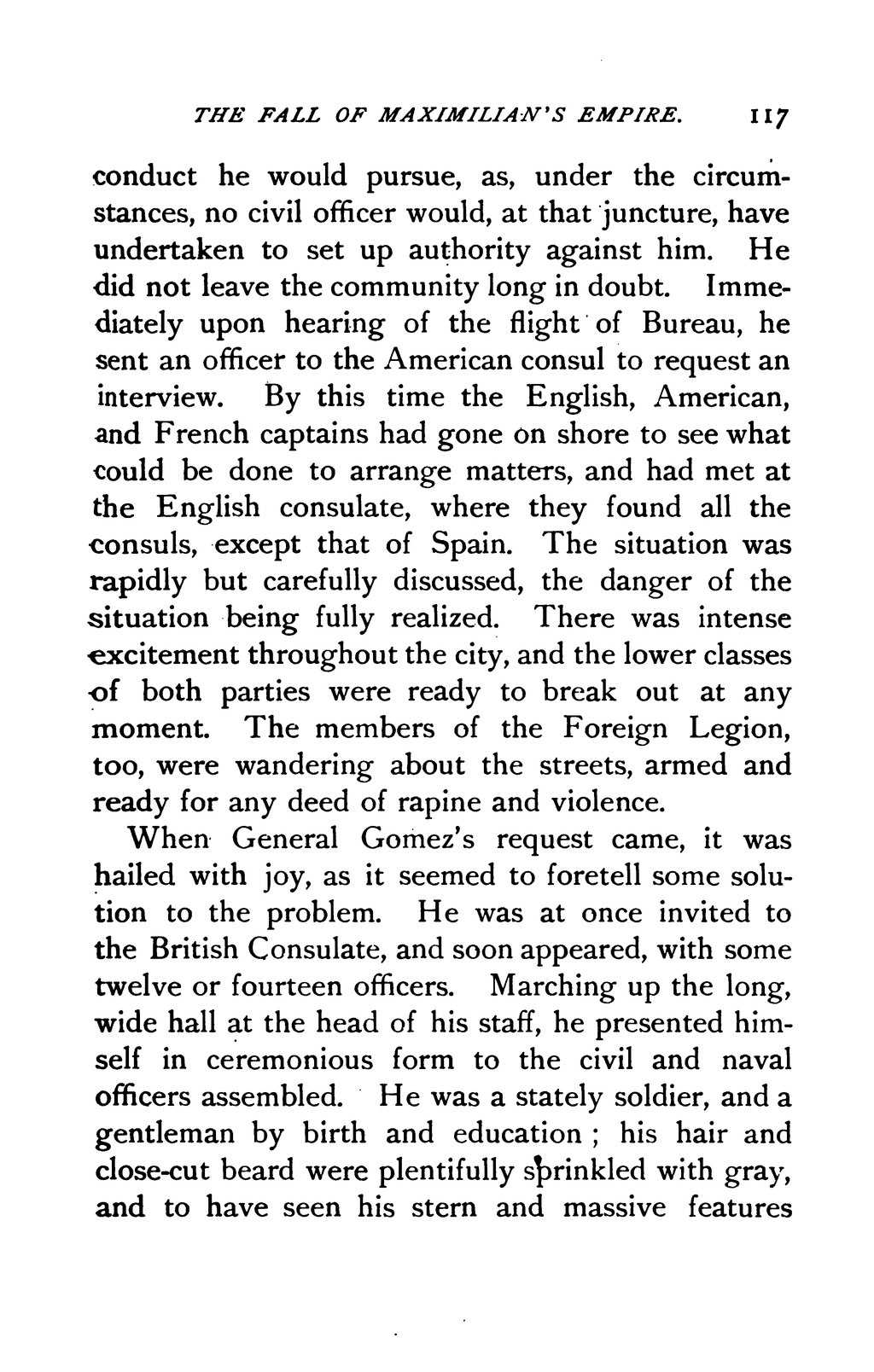conduct he would pursue, as, under the circumstances, no civil officer would, at that juncture, have undertaken to set up authority against him. He did not leave the community long in doubt. Immediately upon hearing of the flight of Bureau, he sent an officer to the American consul to request an interview. By this time the English, American, and French captains had gone on shore to see what could be done to arrange matters, and had met at the English consulate, where they found all the consuls, except that of Spain. The situation was rapidly but carefully discussed, the danger of the situation being fully realized. There was intense excitement throughout the city, and the lower classes of both parties were ready to break out at any moment. The members of the Foreign Legion, too, were wandering about the streets, armed and ready for any deed of rapine and violence.
When General Gomez's request came, it was hailed with joy, as it seemed to foretell some solution to the problem. He was at once invited to the British Consulate, and soon appeared, with some twelve or fourteen officers. Marching up the long, wide hall at the head of his staff, he presented himself in ceremonious form to the civil and naval officers assembled. He was a stately soldier, and a gentleman by birth and education; his hair and close-cut beard were plentifully sprinkled with gray, and to have seen his stern and massive features

